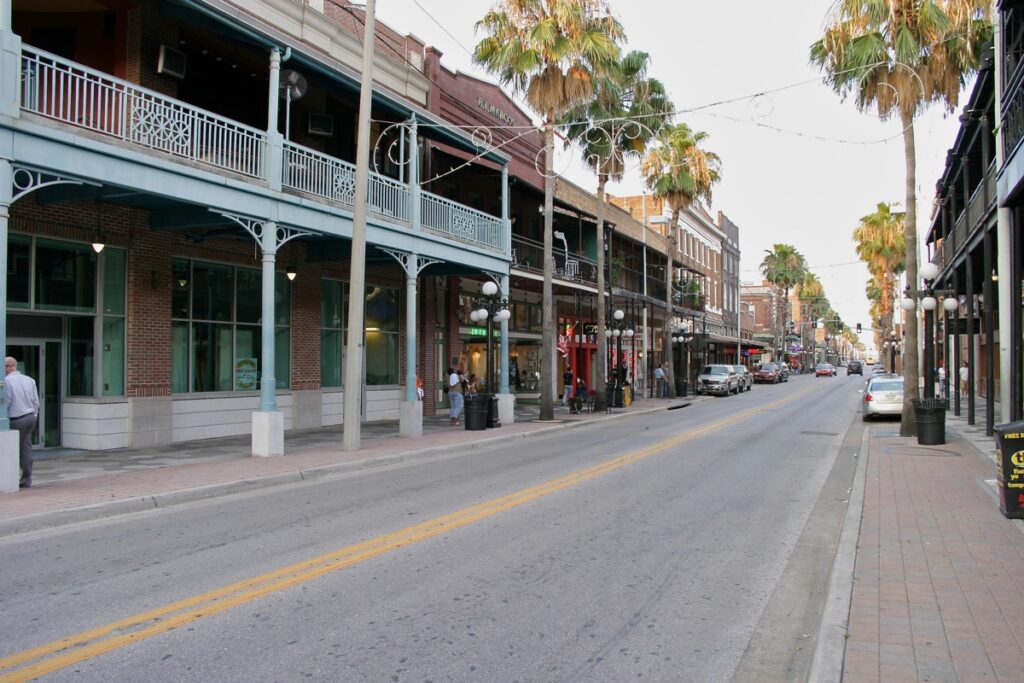
Caroline Bryant
The Southern Editor
Tampa Bay mayor, city council and police all support a proposed juvenile 1 a.m. curfew in Historic Ybor City following recent violence. But as someone who grew up on the outskirts of Baltimore, familiar with failing curfews, I believe the same will happen to Ybor if one is put in place.
While I did not live in an area that enforced a curfew, many places I visited added new ones for minors.
Many of these curfews ban minors or those under the age of 16 from being at these public places at certain times to prevent loitering and juvenile violence. However, this behavior has not decreased. Instead, these activities were displaced to new areas.
For instance, in the summer of 2022 when my sister and I attempted to see the new Minions: Rise of Gru movie at the AMC in the Owings Mills Town Center, we were declined tickets because the movie started after 9 p.m. Those under 17, like my sister, had to be accompanied by a 21-year-old to enter the theater because that was when the curfew began.
When we left, the outside sidewalks of the AMC were crowded with teenage boys huddled together. They discussed meeting up at places that didn’t have a curfew when it was time to leave.
The same issues could occur if a curfew were to be placed in Ybor. If the curfew passes, people will find a new neighborhood in the Tampa or Tampa Bay area that has the potential to be the next hub for nightlife. Sophomore Alex Elliott said they’d do so, as going to Ybor wouldn’t be worth it anymore.
“If I go out at night I don’t usually get there until 10 p.m. or later. I wouldn’t want it to be a waste of money if I only got to be there for a couple of hours,” Elliott said.
Or people will stay in Ybor until 1 a.m. and then move to that hub when it’s time to leave. No one is going to go home like the council wants them to.
One can compare this to the South Florida New Year’s Eve curfew in 2020. According to NBC Miami, Broward and Miami-Dade counties installed a 1 a.m. curfew to prevent the spread of COVID-19 heading into 2021. However, social venue owners told NBC they feared the curfew would draw more people to illegal warehouse parties.
Additionally, many cities enforce curfews even though research states they aren’t effective. Time Magazine reported that the Philadelphia Police Department found that crime did not decrease a month after Philadelphia’s new curfew. Certain crimes, like robberies with a gun, increased. This could happen in Ybor.
Gunfire incidents could also go up. The Florida Phoenix found through the Social Science Research Network that gunfire incidents increased by 150 percent in Washington, D.C. between 2006 and 2013 due to curfews.
Moreover, the Florida Phoenix mentioned that many perpetrators didn’t face consequences for their crimes because curfews “keep bystanders and witnesses from the streets.” Doesn’t that defeat the purpose of why the council wanted the Ybor curfew in the first place?
The history behind curfews in the United States influences its existence today, as well. The Washington Post states that the curfew’s origin began in the colonial era in the 17th century and was exclusive to Black and Indigenous people.
Curfews during the Jim Crow era were made to defy Black protest and community. Racial profiling and over-policing came as a result, especially in areas with teenage curfews, a characteristic not uncommon in cities with curfews today.
Curfews continue to exist in predominantly Black neighborhoods. Statistical Atlas, a site listing every city’s demographics, states that Ybor City neighborhoods are 42.5 percent Black and 37.9 percent Hispanic.
A logical argument would be to encourage the city council to prevent the reason behind the curfew: gun violence. Much of the research shows that establishing stricter gun ownership and gun safety laws decrease mortality rates.
Yet, according to Everytown for Gun Safety Nonprofit, gun laws in places with bigger cities have difficulty controlling gun control success due to trafficking. Though Ybor isn’t a big city, but a district within a big city, it is unclear if this would be the case if harsher laws existed.
Finding an effective solution to crime and violence in Ybor will take time. Choosing a curfew as the quickest route will be pointless.







